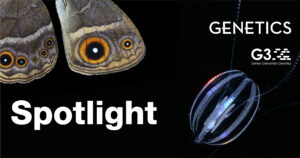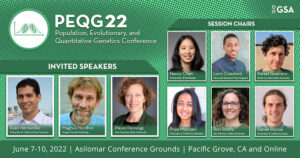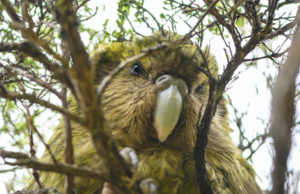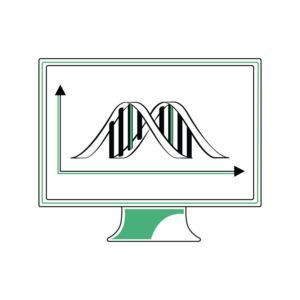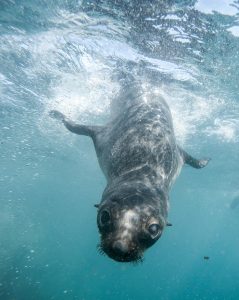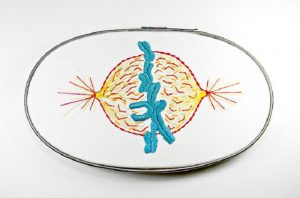Enter your address to receive notifications about new posts to your email.
Articles tagged Population Genetics
(75 results)
-
GENETICS articles recognized with Editors’ Choice Awards
Congratulations to the winners of the Editors’ Choice Awards for outstanding articles published in GENETICS in 2021! The journal’s Editorial Board considered a diverse range of articles, finding many papers worthy of recognition. After much deliberation, they settled on one exceptional article for each of the three award categories: molecular genetics, population and evolutionary genetics,…
-
The 2022 PEQG session chairs offer a delightful blend of breadth and depth
Guest post by C Brandon Ogbunu. 2022 marks the return of the Population, Evolutionary, and Quantitative Genetics (PEQG) Conference, organized by the Genetics Society of America. Part of the meeting’s popularity stems from being one of the few conferences that brings together leading thinkers in subfields of genetics that don’t typically overlap, across a range of…
-
As New Zealand’s endangered kākāpō rebounds, researchers measure genomic signs of inbreeding
Efforts to diversify an inbred population must take into account the genetic backgrounds of the founders. A female kākāpō named Rimu, whose parents are both Stewart Island founders.Photo by Jake Osborne. The nocturnal flightless parrot known as the kākāpō was once abundant throughout New Zealand. But after the introduction of mammalian predators, the species all…
-
In Memoriam: Richard Lewontin
Dick on sabbatical and my good fortune Guest post in memory of Richard Lewontin by Thoru Pederson. When I was a graduate student in the Zoology Department at Syracuse University, a visiting professor took an office across the hall from the lab where I was stationed. He came “across” to me (not a cis-trans test…
-
James F. Crow Award talks at TAGC 2020
The James F. Crow Early Career Researcher Award recognizes outstanding achievements by students and recent PhDs presenting their work at the Population, Evolutionary, and Quantitative Genetics (PEQG) Conference, which was part of TAGC Online in 2020. The 2020 winner and finalists for this prestigious PEQG award spoke in a high-profile session at the conference. Check…
-
From hidden contributor to professor: an interview with Margaret Wu
An interview with one of the “acknowledged programmers” whose contributions to early computational population genetics have been examined by an analysis of article acknowledgment sections. Guest post by Emilia Huerta Sanchez and Rori Rohlfs. Margaret Wu, Professor Emeritus at the University of Melbourne, is a leader in the field of education statistics, having published 80…
-
Loaded words
Guest author Amir Teicher discusses how the concept of “genetic load” traces its roots back to eugenic thinking, as described in his recent Perspectives article in GENETICS. The possibilities opened up by advances in genome sequencing have recently spurred discussions on the burden, or cost, that mutations pose to organisms and populations. Does the relaxation…
-
A look into how fur seals rebounded after overhunting
A new genome assembly for Antarctic fur seals sheds light on their historic comeback after 19th century hunting. In the late 19th century, the Antarctic fur seal was thought to be effectively extinct. After over a century of overexploitation driven by demand for the seal’s prized pelt, populations at known breeding grounds seemed to have…
-
Katherine Xue studies how the flu evolves inside you
The recipient of the 2018 Crow Award reveals details of flu evolution at the smallest —and largest—scales. For many viral diseases, a vaccine can provide lifelong protection. But for flu, you need a new shot every year. The influenza virus evolves so fast it presents a constantly moving target for both our immune systems and…
-
Athlete’s foot fungus varies little around the globe
Sexual reproduction is scarce in skin infection culprit. While some people love to feel the burn during a workout, we generally seek that sensation in our muscles—not our feet. Treading barefoot in damp, communal environments like gym showers and the perimeters of pools can expose us to the fungus Trichophyton rubrum, the most common cause…
-
A day in the mouth
Rapid genomic changes observed in Candida albicans soon after exposure to the oral cavity. Whether or not you treat your body like a temple, it presents a hostile and rapidly-changing environment for the many microorganisms that call you home. In contrast to the microbes that hang out inside humans, those that are cultured in the…

